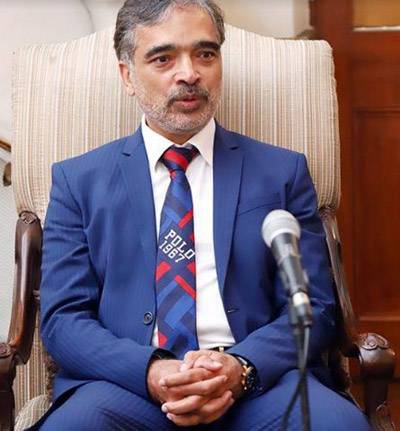LAHORE - The Pakistan Industrial and Traders Associations Front (PIAF) has observed that the repeated increase in the gas and electricity prices to an unbearable level by the interim government has left the trade and industry uncompetitive; blaming it for trapping the country in the IMF plans.
PIAF Chairman Faheemur Rehman Saigol, strongly opposing gas price surge, said that the gas tariff hike has threatened the industrial sector, besides increasing unemployment, saying that the every government had poor economic policies that unleashed the free fall of rupee against the dollar, ensuing in input cost escalation to pull down the manufacturing growth.
He warned that the continued escalation of gas prices could result in the closure of numerous industries, amplifying unemployment rates and diminishing Pakistan’s export capabilities, appealing to the government to reverse this decision promptly and establish a fixed gas price of Rs1,800 per mmbtu for industries.
Emphasising the need for the government to explore and provide affordable energy alternatives for the industry, he stressed that such measures are crucial for ensuring the competitiveness of Pakistani products in the global market. As the industrial sector grapples with the ramifications of the gas price hike, PIAF leader’s stance advocates for the preservation of industrial stability and the prevention of potential economic setbacks for Pakistan.
The PIAF chairman condemned the recent increase in gas tariff as approved by the Economic Coordination Committee and the caretaker government. He has demanded the government to take back the decision of hike in gas tariff in the larger interest of national economy and to save the industries from collapse. He warned that in case, the decision is not withdrawn, the industries will close down, resulting in decline in exports and mass unemployment.
In an appeal, he said that the business community was given assurance for 9 cents per KWh electricity tariff by the caretaker government. The assurance brought a sigh of relief and hope for the business community that the new tariff will help in reduction of production cost and they will be able to continue production unabated and deliver export orders on time. However, contrary to the assurance given, POL, electricity and gas tariff are being increased constantly by the caretaker government. He said that currently, the national economy is passing through severe crisis. To run an industry is no more a profitable business. He questioned the caretaker prime minister as to how economy of the country can be stabilised and strengthened in the absence of industrial and business activities? Unfortunately, the caretaker government has taken no step to provide competitive environment to industries, lower the cost of production and reignite the engine of national economy, which has left the industrial community in despair, he remarked.
He vehemently rejected the recent surge in gas prices, asserting that this decision poses a severe threat to the industrial sector, potentially leading to increased unemployment. He expressed concern over the already elevated production costs in the region, rendering industrialists less competitive compared to their counterparts in neighbouring countries. Showing their profound concerns, he said that the country’s exports have nose-dived comparatively by 12.71 percent from $31.78 billion in July-June 2021-22 to $27.74 billion over the same period in 2022-23, citing the harsh factors, which is hurting the industry. This is 16.61 percent decline to the export target of $32.35 billion set for the fiscal year 2022-2023, he said and added that the export-oriented industries are faced with the greatest ever challenges in terms of the highest cost of manufacturing. Many industries, he claimed to have already stopped their production in the country with several others fearing a closure because of the unviable trade, which may also pulled the country’s exports further down. The interim rule has raised gas tariffs to the highest ever levels by 118 percent from August 2023 and added on with a 40 percent cost of RLNG. This move overall gave a steep rise of 191 percent to the gas prices to the historic levels, he added. The exports industry is also compelled to pay the exorbitant gas price, which is tagged with the cross subsidy that the fertiliser, feedstock, domestic consumers and power generation sector enjoy, he pointed.






